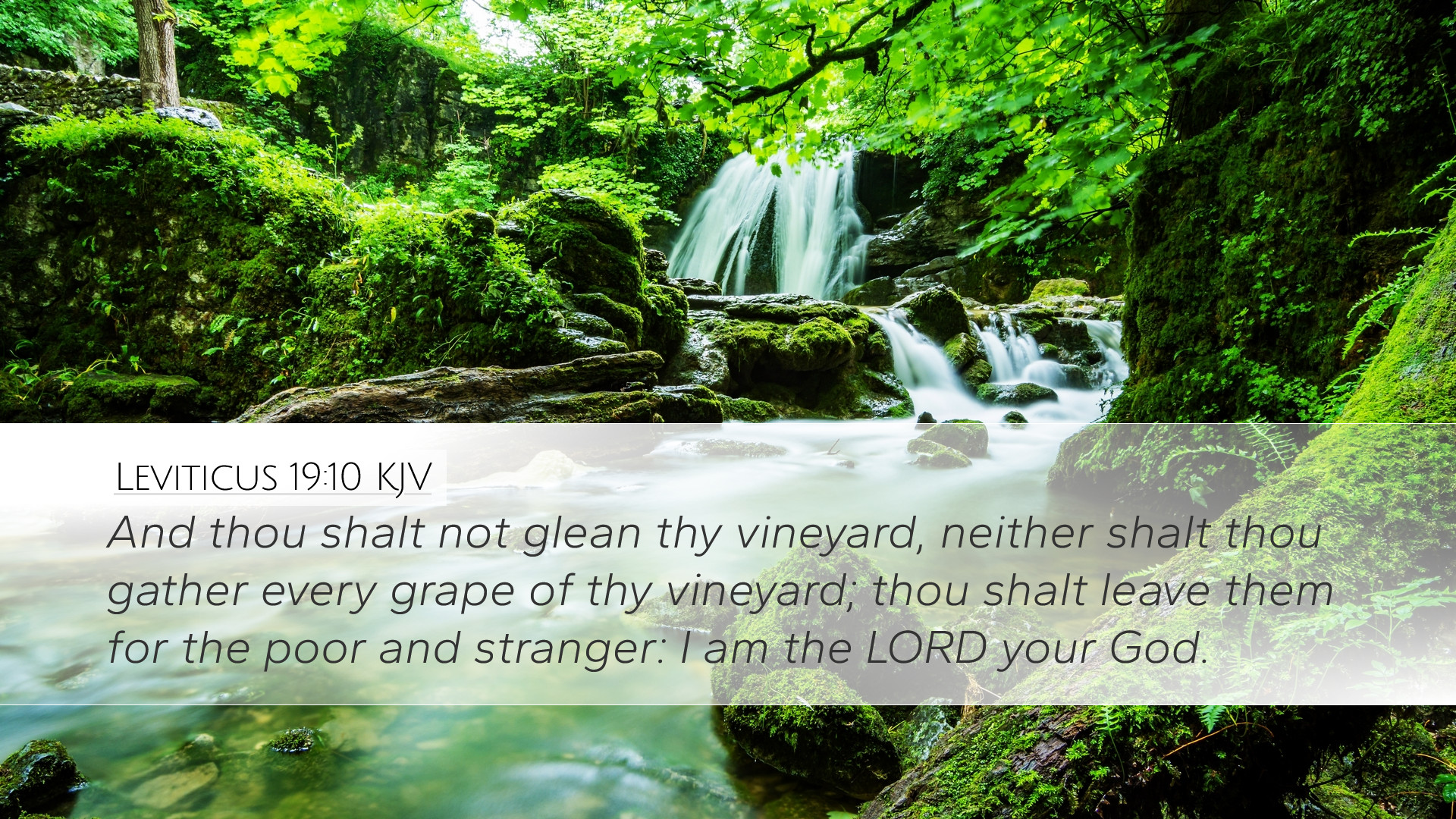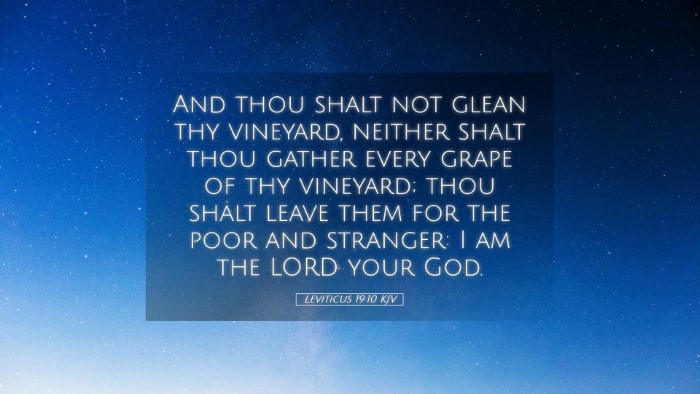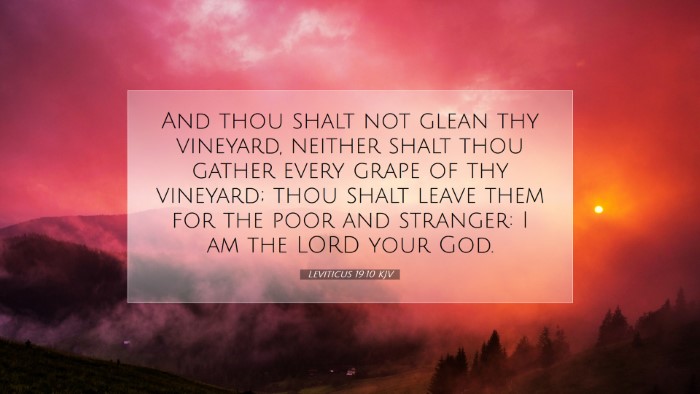Commentary on Leviticus 19:10
This verse states: “And you shall not glean your vineyard, nor shall you gather every grape of your vineyard; you shall leave them for the poor and the stranger: I am the LORD your God.” Here we present an examination of this scripture through the insights offered by respected public domain commentators including Matthew Henry, Albert Barnes, and Adam Clarke.
Contextual Overview
Leviticus 19 is a part of the Holiness Code, focusing on personal holiness and righteous living within the community. This chapter calls for obedience to God's commandments and emphasizes the need for social responsibility towards the poor and marginalized in society.
Exegesis of the Verse
In this verse, God instructs the Israelites regarding their practices in agriculture. Specifically, it addresses the act of gleaning—a means by which the marginalized would have access to food that would otherwise be wasted.
Matthew Henry’s Insights
Matthew Henry highlights the humanitarian aspect of this command. He states that the instruction to not glean every grape or harvest every bit of grain serves to ensure that the less fortunate have sustenance. He emphasizes that this was not merely a social welfare measure, but a divine command that reflects God's character—compassionate, just, and caring for the marginalized:
- Provision for the Poor: Henry notes that the directive emphasizes charity and support for the poor. God desires that those who have much should share with those who have little.
- Divine Ownership: He draws attention to the phrase, “I am the LORD your God,” indicating that the mandate comes from a sovereign God who claims ownership over all things, which entails responsibility toward others.
Insights from Albert Barnes
Albert Barnes adds legal and cultural dimensions to the commentary. He points out how the practice of leaving produce for the poor was not only a moral obligation but a societal law within Israel. Barnes elucidates the following points:
- Cultural Practices: He notes that such actions reflect the agrarian culture of Israelite society which thrived on communal support. Every year, these practices created an expectation among the poor that they would benefit from the generosity of others.
- God’s Concern: The command underscores God's concern for social justice. It signifies that God does not merely care about individual piety but also about community welfare.
Adam Clarke’s Commentary
Adam Clarke provides a detailed analysis of the agricultural practices of the ancient Israelites, suggesting that these provisions were practical methods to ensure that the marginalized could participate in the community’s prosperity. Clarke discusses the following aspects:
- Gleaning as a Right: Clarke mentions that leaving grapes and parts of the harvest was seen as an inherent right for the poor which stemmed from God’s law. It served both as a reminder of their dignity and a provision for their daily needs.
- Spiritual Lesson: He posits that this commandment carries a spiritual lesson about generosity and the ethics of wealth. The affluent are called to remember those in need and act selflessly.
Theological Implications
This verse can be seen as a reflection of broader biblical themes regarding charity, justice, and community. It compels believers to recognize their responsibility towards others:
- Justice and Mercy: The act of leaving behind food for the poor illustrates a balance between justice (in ensuring the poor are cared for) and mercy (in willingly sacrificing personal gain).
- God’s Nature as Provider: It emphasizes the understanding of God as a providential protector who provides not only for His chosen people but for all who find themselves in need.
Application for Today’s Believers
In contemporary society, the principles illustrated in Leviticus 19:10 remain relevant. Here are several applications for pastors, students, theologians, and scholars:
- Social Responsibility: The call to leave some of our success and resources for those in need is as pertinent today as it was for the Israelites. Communities are encouraged to create programs that reflect these biblical principles.
- Promoting Equity: It challenges modern believers to promote justice and equity in their spheres of influence, ensuring that the vulnerable are not neglected.
- Spiritual Generosity: This verse invites personal reflection on one's practices concerning generosity. It asks individuals to ponder their own "gleanings" and consider how they can provide for others.
Conclusion
Leviticus 19:10 encapsulates essential truths about God’s desires for His people. Through the insights of revered commentators, we are reminded that the call to love and care for the marginalized reflects the very heart of God. As we engage with scripture, let us do so with the intention of embodying these truths in practical and transformative ways. By leaving behind our excess for those in need, we not only fulfill the law of love but also honor the God who commands us to do so.


